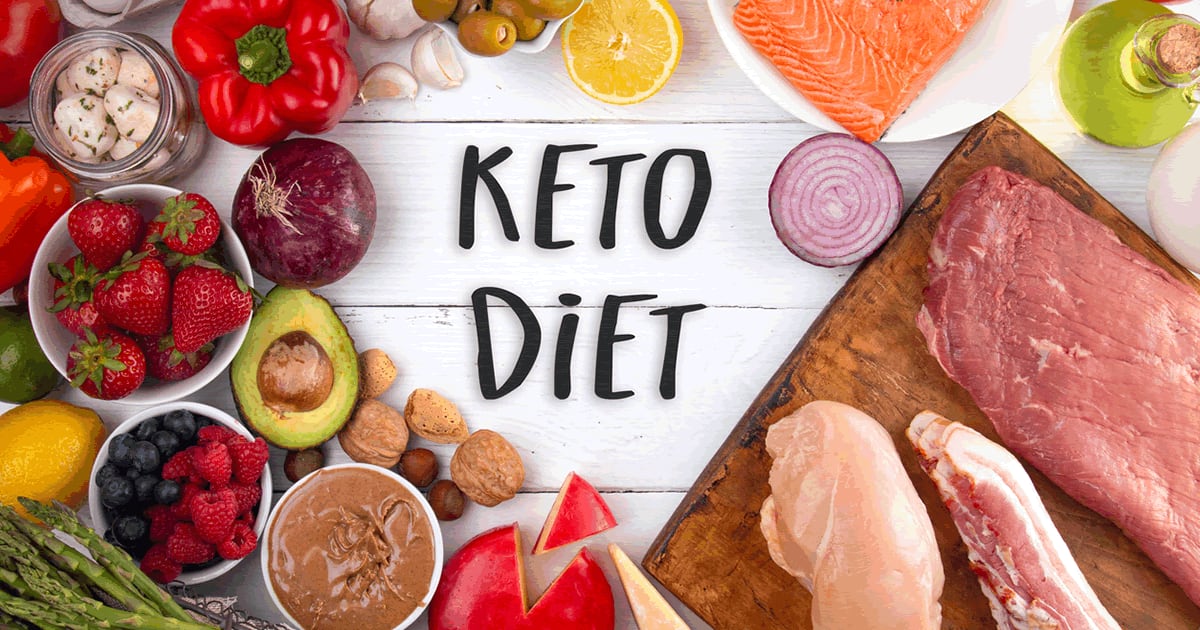Ketogenic Diet And COVID-19: Yale Led Study Advocates Keto Diet For Elderly COVID-19 Patients Due To Possible Benefits And Better Clinical Outcomes
Source: Ketogenic Diet And COVID-19 Sep 19, 2020 5 years, 4 months, 1 week, 4 days, 3 hours, 37 minutes ago
Ketogenic Diet And COVID-19: Researchers in a new study led by Yale School of Medicine but also involving scientist from New York University Langone Health and Washington University School of Medicine, advocate a ketogenic diet (A diet in high fat, low carbohydrate) for elderly COVID-19 patients and even those not infected yet it is capable of mitigating clinical outcomes of COVID-19 in this vulnerable group by improving immune-metabolic functions and reducing inflammation.

According to the researchers, a ketogenic diet is able to increases beta-hydroxybutyrate, expands tissue protective γδ T cells, deactivates the inflammasomes and decreases pathogenic monocytes in lungs, all beneficial for elderly COVID-19 patients.
The study findings were printed on a preprint server and are pending peer review.
https://www.biorxiv.org/content/10.1101/2020.09.11.294363v1
To date, several studies have identified age as the strongest risk factor associated with a high mortality rate in patients with severe acute respiratory syndrome coronavirus 2 (SARS-CoV-2) infection. In the United States, about 80% of COVID-19 related deaths occurred in people who were more than 65 years old.
It is known that In general, the activity of the immune system is compromised in older adults because of age-related impairment in B cell and T cell activation together with inflammasome-induced low-grade systemic inflammation.
Studies investigating COVID-19 pathophysiology are however inadequate because of the limited availability of appropriate aging animal models that mimic the consequences of SARS-CoV-2 infection.
In this research, the study team conducted the experiments on a mouse model of natural murine beta coronavirus infection that summarizes clinical outcomes of COVID-19 in older adults.
Already natural infection with mouse hepatitis virus mouse coronavirus-A59 (mCoV-A59) has been extensively used to study a wide range of clinical manifestations of systemic infection.
For this current study, the study team performed intranasal infection of adult and old male mice with mCoV-A59 to mimic COVID-19 clinical characteristics.
The team observed that both old and adult mCoV-A59-infected mice had an almost similar viral load in the lungs; however, old mice displayed higher body weight loss, hypoxemia, and anorexia. The old infected mice also displayed significantly decreased CD4+ T cells, CD4+/CD8+ ratio, and γδ T cells in the lungs and spleen and increased levels of neutrophils and monocytes.
Detailed immunohistochemical analysis revealed that old infected mice had severe perivascular inflammation, edema formation, fibrosis, pneumonia, pulmonary thrombosis, and hemorrhage compared to that in young infected mice.
Interestingly just as similar to elderly COVID-19 patients, mCoV-A59-infected old mice showed increased systemic and cardiac inflammation, as evidenced by increased blood levels of interleukins and tumor necrosis factor-alpha and increased infiltration of CD68+ myeloid cells, respectively.
As a res
ult of both aging and obesity being associated with structural and functional alterations of the adipose tissue, the study team investigated the impact of mCoV-A59 infection on adipose tissue metabolism.
Significantly as expected, the team detected viral RNA in the visceral adipose tissue, which was accompanied by significantly higher inflammatory mediators and increased activation of the inflammasome, especially in old infected mice.
Such similar observations were also found in the hypothalamus of old infected mice, and these findings are similar to SARS-CoV-2-mediated changes in the central nervous system. Severe anorexia observed in old infected mice was due to mCoV-A59-mediated reduction of the expression of orexigenic neuropeptide-Y.
Typically hepatic ketogenesis is a process of converting long-chain fatty acids into short-chain beta-hydroxybutyrate, which is subsequently used as a source of energy during starvation or glucose-deprived conditions.
Past research has demonstrated that beta-hydroxybutyrate inhibits the activation of the inflammasome and protects mice from influenza-related death.
The study team in this research observed that ketogenic diet-induced elevation in beta-hydroxybutyrate levels prevented the assembly of the inflammasome complex, leading to the prevention of inflammasome activation and reduction of inflammation.
Significantly, the study team observed that old mCoV-A59-infected mice fed with a ketogenic diet displayed only mild ketosis, indicating the preservation of lipid metabolism. These mice were protected from infection-related weight loss and hypoxemia and showed deactivation of the inflammasome.
As for the inflammatory responses in the lungs, adipose tissue, and hypothalamus, mCoV-A59 -infected old mice fed
with ketogenic diet showed significantly reduced expressions of inflammatory mediators and reduced cardiac infiltration of myeloid cells.
More importantly , the ketogenic diet elevated the level of γδ T cells in the lungs of mCoV-A59-infected old mice. Single-cell RNA sequencing using whole lung tissue revealed that ketogenic diet provides protection against mCoV-A59-induced inflammatory changes by significantly increasing goblet cells and γδ T cells and reducing proliferative myeloid cells and monocytes.
Simply by conducting bulk RNA sequencing using γδ T cells, the study team observed that a
ketogenic diet increased anti-inflammatory gene expression, induced lipoprotein remodeling, and improved mitochondrial function in γδ T cells.
Such an observation indicates the importance of ketogenic diet-induced γδ T cell expansion in providing protection against mCoV-A59 infection.
The study team commented, “ Our findings assumes strong clinical significance as recent studies, demonstrate that γδ T cells were severely depleted in COVID-19 patients in two highly variable cohorts and disease progression was correlated with near ablation of Vγ9Vδ2 cells that are dominant subtype of circulating γδ T cells (Laing et al., 2020). Taken together these data demonstrate that a ketogenic immunometabolic switch protects against mCoV-A59 driven COVID in mice and this anti-inflammatory response in lung is coupled with reduction of inflammasome activation, restoration of protective ϒδ T cells and remodeling of the pool of the inflammatory monocytes
The study team concluded that based on the research findings, a ketogenic diet could be used as a readily available and affordable intervention to improve COVID-19 outcomes in older adults.
For more on
Ketogenic Diet And COVID-19, keep on logging to Thailand Medical News.
